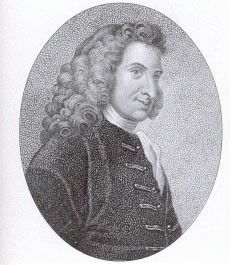Henry Fielding (1707–1754) was a prominent English novelist, dramatist, and magistrate, best known for his pioneering work in the development of the modern novel. He was born in Somerset, England, and educated at Eton College and later at the University of Leiden. Fielding initially pursued a career in theatre, writing numerous satirical comedies. However, the passage of the Licensing Act of 1737, which imposed strict censorship on theatrical productions, forced him to abandon playwriting.
Turning to prose fiction, Fielding began writing novels that would revolutionize English literature. His first major work, Shamela (1741), was a satirical response to Samuel Richardson’s Pamela. This was followed by Joseph Andrews (1742), which blended comedy, satire, and moral seriousness, and introduced his unique narrative voice. His greatest and most influential novel, The History of Tom Jones, a Foundling (1749), is celebrated for its rich character development, intricate plotting, and vivid depiction of 18th-century English society. The novel exemplifies Fielding’s belief in realism and moral instruction, while also showcasing his wit and narrative innovation.
Apart from his literary accomplishments, Fielding had a significant career in law and social reform. As a magistrate in London, he was deeply concerned with crime and poverty, and he played a key role in the establishment of the Bow Street Runners, often regarded as London’s first professional police force.
Fielding’s writing is characterized by its clarity, humor, and moral engagement. His narrative technique—often involving direct address to the reader—was groundbreaking. He is widely regarded as one of the founders of the English novel, alongside Richardson and Defoe. Despite his relatively short life, Henry Fielding left a lasting legacy in literature and law, influencing generations of novelists and reformers with his brilliant combination of storytelling and social consciousness.


